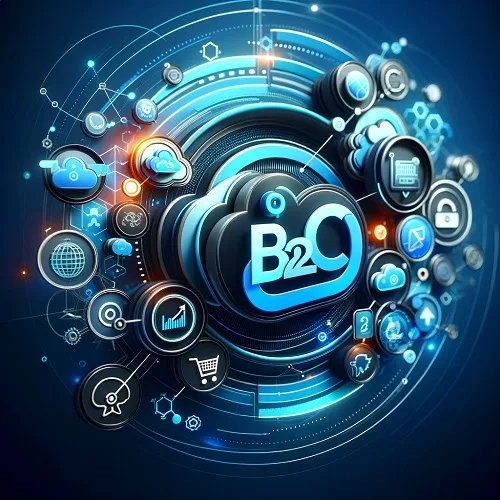
B2C Marketing Guide: Strategies for Success
B2C (Business-to-Consumer) marketing represents the strategies and tactics companies use to promote products and services directly to consumers. This guide delves into the historical evolution of B2C marketing, its operational mechanisms, effectiveness, and the future outlook for businesses aiming to connect with consumers on a personal level.
When It Was Founded and By Whom
The concept of B2C marketing is as old as commerce itself, evolving from simple marketplace transactions to sophisticated digital interactions. However, the term “B2C” gained prominence in the late 1990s with the rise of the internet and e-commerce platforms. This period marked a pivotal shift in how companies approached the consumer market, offering direct online sales channels for the first time.
Amazon and eBay were among the pioneers, revolutionizing the retail landscape by enabling direct, online transactions between businesses and consumers. This shift not only changed buying behaviors but also set new standards for customer convenience, selection, and price comparison.
How This Method Works
B2C marketing involves direct communication and selling to the consumer. Unlike B2B (Business-to-Business) marketing, which focuses on logical process-driven purchasing decisions, B2C marketing appeals to consumers’ emotions, desires, and personal benefits. Strategies include targeted advertising, social media engagement, email marketing, and personalized shopping experiences.
The success of B2C marketing hinges on understanding consumer behaviors, preferences, and trends. Companies utilize data analytics and consumer insights to craft compelling messages and offers that resonate with their target audience.
Furthermore, B2C marketing strategies are increasingly leveraging digital platforms to reach consumers. SEO, content marketing, influencer partnerships, and online reviews are critical components, designed to build trust, brand awareness, and consumer loyalty.
Main Concept
The main concept of B2C marketing is to build a direct, meaningful connection with the consumer. This involves not just understanding what consumers want, but also why they want it, tapping into their deeper emotional and psychological needs. Effective B2C marketing creates a narrative that aligns the brand with the consumer’s personal identity and values.
Personalization is a key element, with companies tailoring experiences and communications to individual consumers based on their previous interactions, preferences, and behavior. This level of personalization fosters a sense of uniqueness and belonging among consumers.
Digital transformation has expanded the reach and efficiency of B2C marketing, allowing for real-time interactions and feedback. Social media platforms, for instance, provide a two-way communication channel, empowering consumers to become brand advocates or critics.
Engagement and experience are at the heart of B2C marketing. Companies strive to create memorable experiences that inspire positive emotions and loyalty. This includes everything from the quality of customer service to the unboxing experience of a product.
Finally, sustainability and ethical considerations are increasingly influencing consumer choices. B2C marketing strategies now often highlight a company’s commitment to social and environmental responsibility, appealing to the values of a more conscientious consumer base.

What Type of Product Can Be Promoted Using This Method
Almost any consumer product or service can be promoted through B2C marketing, from everyday household items to luxury goods, digital services, and experiences. The key is in how the product or service is positioned and marketed to meet the emotional and practical needs of the consumer.
Technology products, fashion, beauty, health and wellness, entertainment, and fast-moving consumer goods (FMCG) are particularly conducive to B2C marketing strategies, given their broad appeal and potential for emotional engagement.
How Effective This Method Is
The effectiveness of B2C marketing can be seen in the profound brand loyalty and consumer advocacy it generates. Brands that excel in B2C marketing often enjoy a strong, positive public image, higher sales, and a competitive edge in saturated markets.
Moreover, the ability to directly measure consumer response and engagement through digital channels allows for agile marketing strategies that can adapt to changing consumer preferences and market conditions.
How Much More Promising It Is in the Future
As technology continues to evolve and integrate more deeply into daily life, the future of B2C marketing looks increasingly promising. Advances in AI, machine learning, and data analytics will further personalize consumer experiences, making marketing messages even more relevant and compelling.
The rise of virtual and augmented reality technologies presents new opportunities for immersive brand experiences, potentially transforming how consumers interact with products and services.
Moreover, the growing importance of social and environmental responsibility among consumers suggests that B2C marketing will play a crucial role in communicating and demonstrating brand values. As such, B2C marketing is not just a tool for sales, but a strategy for building meaningful, lasting relationships with consumers.
